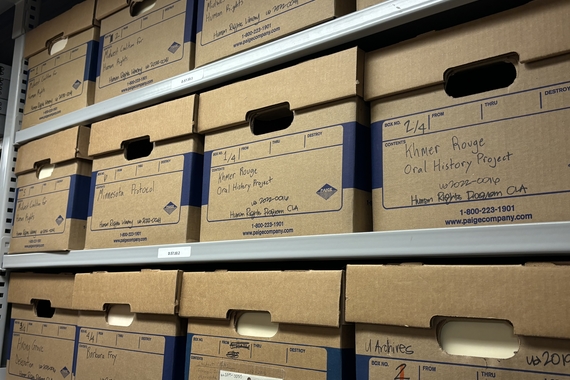MHR Alum Furthers Educational Readiness of Latinx Children
The Center on Women, Gender and Public Policy (CWGPP) included an interview with Andrea Daniela Martinez (MHR '19) in the Center's newsletter on February 17, 2021. Andrea is a former graduate assistant for the Center who focused on public policy, evaluation, immigration and women’s rights during her time in the Master of Human Rights Program. Read more about Andrea and her current work below!
Center on Women, Gender and Public Policy (CWGPP): What have you been up to since your time at the University of Minnesota?
Andrea Daniela Martinez (ADM): I've been working at CLUES (Comunidades Latinas Unidas en Servicio) more than a year now as the Family System Project Manager. 100% of my time is dedicated to a project called the Whole Family Systems Project that is a collaboration with the MN Department of Human Services. The main objective is to reduce the gap that exists of school readiness between Latinx children compared to their white peers. We want to identify what the main barriers are that Latinx families have to access high quality services of early care and education. We also want to empower them to know the resources that are available for them.
CWGPP: What type of community engagement do you undertake in this role?
ADM: This project has a few components. The first one is the community engagement and part of that is having a prime advisor group composed of 30 families. The second piece would be the system partners, which are other nonprofits or other institutions. Then we have Minneapolis Public Schools, Ramsey County, the City of St. Paul. We also have the third component, which is the learning team, the Future Services Institute, that's part of the Humphrey School. They help us with research and evaluation needs that we may have.
CWGPP: What advice would you give to someone who is interested in entering the same field as you?
ADM: Before I started doing this kind of work I used to work in the government for the Mexican Ministry of Foreign Affairs. So it was a very abstract way of implementing policies because you cannot see the immediate results, you're planning and designing. I would’ve liked to learn more about the theory, and the best practice for community engagement. I took a couple of courses at the Humphrey School--one of them was applied research, and they talked about community engagement and how to apply the knowledge from the community to the programs or policies that you are implementing. That course in particular was very useful to me, because we're not trying to tell the communities “this is the best for you or the best thing for you to do,” we are trying to learn from them, and then help them to build something that's actually useful, given their context and their needs.
CWGPP: Do you have any advice for BIPOCs going into public policy/human rights work in particular?
ADM: I would say, the first thing for me is to take care of yourself. I think that every person has their own way of taking care of themselves but for me, just taking a break whenever I need to, reaching out to family or friends and taking some time to relax. Also, being aware of our own identity. I think that's also good practice in general. Even if you identify as Latinx or a person of color we have some kind of privilege and being aware of that; based on that, how your own privilege can help you to assist other people.



